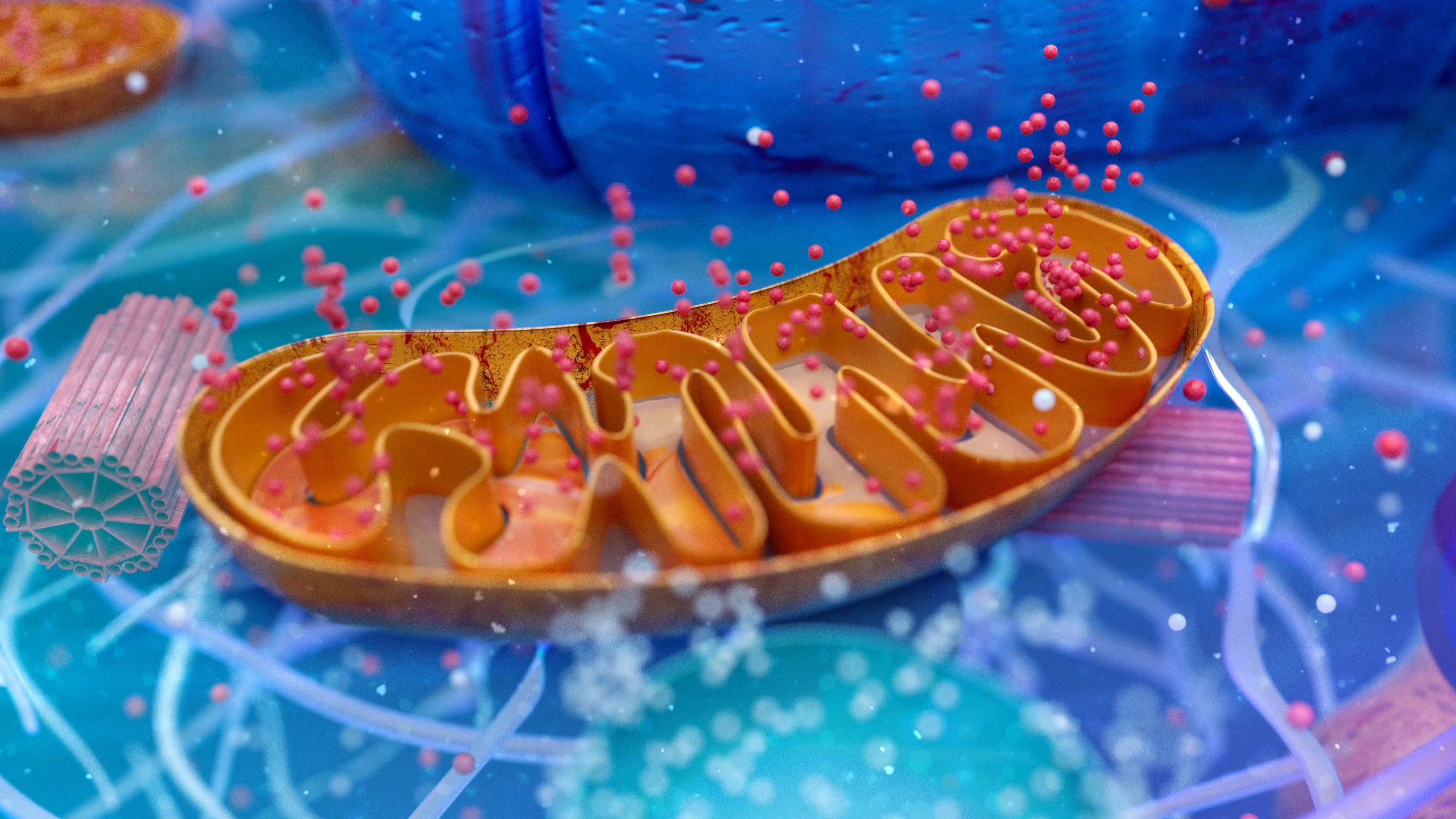Mitochondria – our indispensable energy power plants!
Mitochondria – you’ve probably never really heard of them, have you? Some of you may remember the term from your biology lessons at school. Mitochondria are the ultimate power plants in our body cells. Without them, virtually nothing in the body works, because they produce our energy!
Mitochondria are so-called cell organelles – that is, they are found as components in all our body cells – well, except for our red blood cells (the so-called erythrocytes). Every body has over 80 trillion body cells and in every single one of these cells there is not just one mitochondrion, but 1,500 to 4,000 mitochondria! Crazy, isn’t it!
Our mitochondria produce energy in the form of ATP. Some of you may have heard this somewhere before and vaguely remember it. ATP, adenosine triphosphate, is the one-and-only energy supplier in our body that keeps all organs and metabolic processes running and supplies them with energy.
Let it melt in your mouth – EVERYTHING in the body needs and consumes ATP energy. Our liver, our kidneys, our thyroid gland, our intestines, our hormone system, the immune system, the mucous membranes, the ovaries, uterus, prostate, adrenal glands, our heart, our sensory organs – simply EVERYTHING needs and uses ATP.
So if you take a closer look, the mitochondria are the basis, the core-core-core of any disease and also of any recovery process. If we are poorly positioned here, we get complaints in many different places in the body. If we ignore the mitochondria in our therapy…., it becomes difficult to actually become and remain healthy at the core.
Without energy, nothing runs in the body! So I think we should thank our mitochondria every day for the ingenious hard work they do to keep us alive.
The cells with the highest number of mitochondria are found in our heart, our muscles, our nervous system and in our sensory organs. So if you have messed around with your mitochondria, these are the areas where complaints tend to occur first. However, this does not necessarily have to be the case.
How do our mitochondria work?
Our mitochondria are little marvels – just like our entire body. Roughly speaking, they produce the aforementioned ATP (energy) from the fatty acids, carbohydrates and proteins/amino acids that we take in with our food.
In simple terms, there are several work processes in the mitochondria in which substances are broken down and converted so that ATP is produced at the end. It can be understood as a chain – processes that take place one after the other and must also take place so that ATP can actually be produced.
Sounds pretty simple at first, doesn’t it? So what’s the problem?
Well, these processes not only need fatty acids, carbohydrates and proteins as starting substances, they also need all kinds of micronutrients – including B vitamins, coenzyme Q10, L-carnitine, potassium, magnesium and so on.
The processes/complexes can ONLY take place and ATP can ONLY be produced if all nutrients are present in sufficient quantities!
When and how do problems arise?
If nutrients are missing in the cell and also in the mitochondria, the mitochondria cannot produce energy.
Unfortunately, our micronutrients are becoming increasingly deficient due to a variety of factors/life circumstances. Stress is the biggest and, in my opinion, most important factor.
If the nutrients are missing – even if only a few of them are in deficit – then the mitochondria cannot work properly and cannot produce energy, they are damaged and then cause illnesses/disorders – also known as mitochondriopathies.
As we have mitochondria in all our organs and tissues, this can lead to complaints/diseases in all areas of the body and of course also in the psyche.
Factors that lead to nutrient deficiency
How can we do something good for our mitochondria
/ regenerate them?
Since we are all exposed to the above-mentioned factors that damage our mitochondria, the question now is what can we do?
Yes, it’s true that living in a city in particular brings with it increased stress. But we can adapt our lives here and there in small steps. We can drink more, exercise more, eat more healthily – at least occasionally – and so on.
It’s simply about being more aware of ourselves, our body, our psyche and our lives. That is the most important thing in mitochondrial regeneration.
From a therapeutic point of view, every patient first undergoes a detailed diagnostic process with me. This means that there is a comprehensive medical history interview. This allows us to see how the symptoms have developed over the years.
The more precise the diagnosis, the more effective the treatment can actually be.
As a result, treatment to regenerate the mitochondria
roughly consists of the following simplified factors, which should ideally work together:
Step by step, the patient should be able to regenerate their mitochondria and achieve an absolute improvement in their quality of life.
How long and how successful the treatment will be depends on many factors and can never be predicted, especially as I, as a non-medical practitioner, cannot and must not make any promises of a cure in any respect. Regeneration is possible – always in my opinion! It is a question of the interplay of many factors and of course the psyche should not be disregarded!
In my opinion, there are clear reasons why we humans are brought into a certain state of, I’ll call it “weakness” here and there. In most cases, we have gone a bit off the rails and the body then acts out because we have obviously not seen/understood it on other levels. The poor body has to make clear what we should see. And simply getting the body back into “top form” so that life can continue as before…. is certainly not the way growth and healing are intended in the world and in life.
So it is important to understand and consciously perceive how you live, how you treat yourself and your body and where it all leads, and to consciously ask yourself: Where do I want to go? How am I? What do I want? What are my wishes?


Leave A Comment